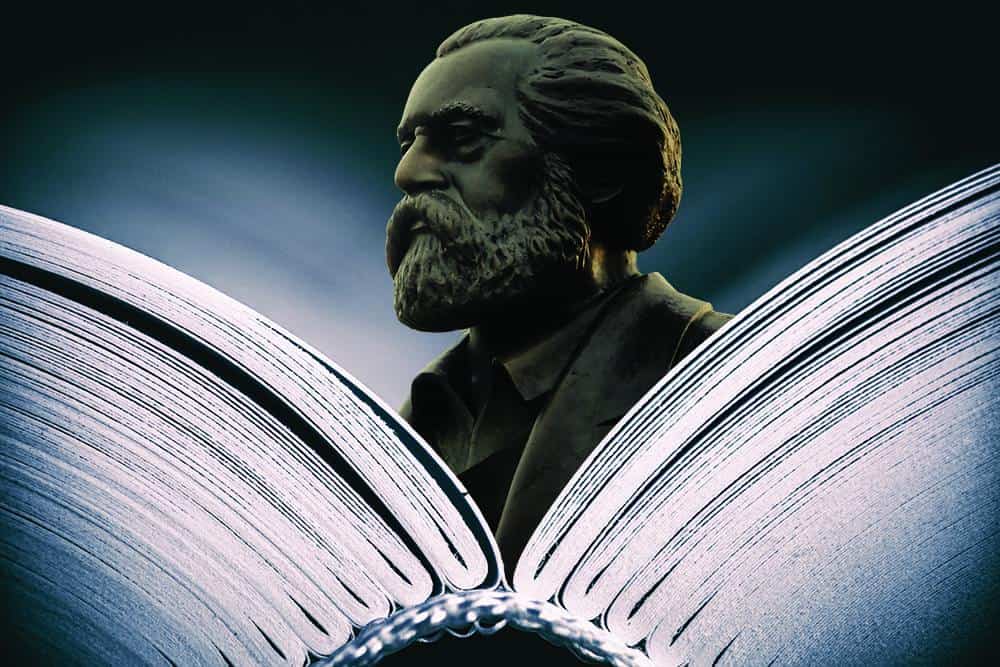Raj Patel demonstrates the limits of liberalism

author: bodie robinson | a & c writer

Sick beard, my friend./Olli Henze via Flickr
We’re starting a trend, Bookish with Bodie
From Carl Menger to Karl Marx, Hayek to Keynes, Rousseau to Hobbes, Neoliberal Democrats to the Zapatistas, Raj Patel’s The Value of Nothing: Why Everything Costs So Much More Than We Think (2010) is a cornucopia of delicious factoids on political economy, political philosophy, and history. Patel tries to capture his reader with all manner of interesting stories and perspectives from those on either side of the liberal political binary.
Patel wrote his book in response to the 2008 global financial crisis. In this book, Raj is attempting to identify and diagnose an issue that has mystified many thinkers from a variety of fields for a long time, especially considering economic trends of the past decade. That is, what is causing capitalism’s frequent crises? Here I am referring to the winding road that capitalism has taken us on in the past few centuries. This relatively sustained the boom in profits during the nineteenth century, especially in England. This boom came at a cost, in the form of gross disregard for the rights and wellbeing of workers.
Then we have the Roaring 20s, followed by the Great Depression. The response to the Great Depression was the Keynesian model: let the government pump money into the economy and create jobs in order to get things rolling again. This kept on until the late 60s and 70s, when we saw the peak of real wages followed by the introduction of the credit card.
Then we have the Reagans and Thatchers of the 80s: the immortal science of neoliberalism, supply-side economics. And don’t forget the proto-capitalism of the sixteenth and seventeenth centuries championed by European colonizers, as well as the imperialism that has sustained us more recently. So why can’t we get it right once and for all? Why can’t our economic model find stable equilibrium? Raj Patel ponders these questions in The Value of Nothing.
This book is undoubtedly a creature of the left side of the political spectrum. But I think a more accurate nomenclature for the politics of this book would be “left-leaning,” since it is decidedly a liberal meditation. There is nothing novel or radical about Patel’s analysis or his prescriptions (which I will discuss later). Patel wants to solve capitalism’s crisis, but he doesn’t, at any point, want to confront the idea that perhaps capitalism itself may be the problem. He doesn’t want to admit that capitalism, like any other economic system, comes with its own costs and benefits, its own inherent and irreconcilable contradictions. And, following that, he obviously doesn’t want to confront the idea that history shows these contradictions usually only have two final outcomes: violent revolution or societal collapse. For him, capitalism itself can do no wrong: “It’s far easier to think about the crisis as the result of poor regulation or bad apples on Wall Street than to see it as emerging from a social system into which we have been folded.” Perhaps he’s right, but I hope that my reader can at least relate to my frustration. Liberals are great crusaders against injustice and inequality, but they don’t have the courage to question some of the fundamental mechanisms of our society that produce this injustice and inequality.
Instead, Patel takes the pusillanimous route that all National Bestsellers must take. He spews feel-good quotations and extremely vague, “humane” solutions to the problem of capitalism’s crisis. His prescription is basically a Keynesian one. Patel suggests two things. First, that the government ought to play a bigger role in the market, and that it should impose heavier regulations on capitalists (he calls them “entrepreneurs”) and their enterprises.
“Property and government can be much more plastic than we’d ever thought possible,” Patel writes – a twinkle in his eye, I’m sure.
Second, Patel asks us that we all appeal to one another’s humanity, come together, and begin a more democratic dialogue on the economy.
Patel laments the nonparticipation and apathy of the average citizen in the Western liberal democracy.
“Ours is not so much a democracy as a complainocracy—a means of vacating the seat of power when the incumbent gets too troublesome.”
The solution then, as Patel sees it, is for everyone to care a whole lot more about politics and government. We need more participation. We need more witty editorials. We need more criticism of government and economics—within reason, of course. We need more representative government. We need to insist that capitalists defy their obligations to maximizing shareholder profits, and act more responsibly toward workers and the environment!
Patel’s finale: “This, ultimately, will be a collective enterprise, tough but infinitely more rewarding than today’s market society. Our happiness cannot come from its solitary pursuit, but from the liberty of living together and engaging in the democratic politics that will help us value our common future.”
Look, if your political project can be summarized as “everyone treating one another a bit better,” then you don’t have a political project. You have metaphors and metaphysics. You have moralism and useless platitudes. Save it for Sunday school. This book is riddled with cliché, vapid calls to action, and lukewarm liberalism. There is nothing courageous or dissident about this book. It hardly identifies the problem, and therefore its solutions – if we can call them that – fall short of the mark, to say the least. But, I will give Patel this. He at least puts the “educate” in Educate, Agitate, Organize. I just wish he would’ve led readers to use this education to actually do something about our current crisis, which doesn’t have any kind of easy or quick resolution, as far as anyone can tell.
Since Patel loves exhausted quotations from pop intellectuals so much, I’ll give him one from my own repertoire: “We cannot solve our problems with the same thinking we used when we created them.” –Albert Einstein









